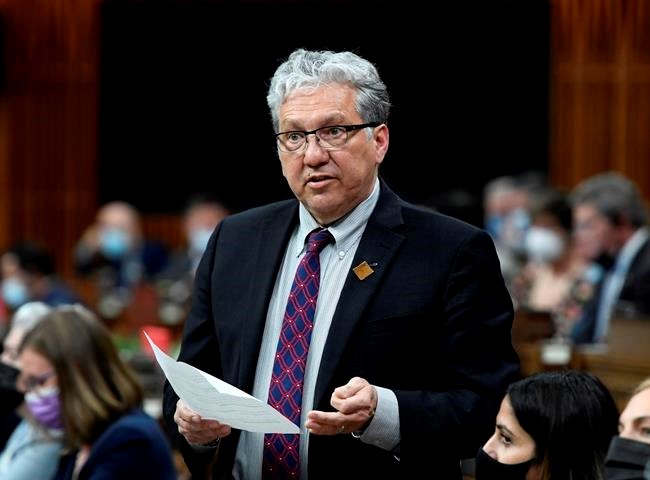POND INLET — Federal cabinet ministers have denied a request to expand an iron ore mine on the northern tip of Baffin Island.
Northern Affairs Minister Dan Vandal issued a letter to the Nunavut Impact Review Board Wednesday saying Baffinland Iron Mines Corporation's proposal should not proceed at this time.
He cited concerns about potentially negative environmental impacts on wildlife, vegetation and water, as well as socio-economic effects on Inuit.
The proposed expansion would double production at the Mary River Mine to 12 million tonnes a year. Earlier this year, the federal government extended a production increase to six million tonnes from 4.2 million tonnes until the end of 2022.
The expansion called for building a 110-kilometre railway from the mine to the port at Milne Inlet. It would have been the northernmost railway in Canada and the first in Nunavut. The project also called for a second dock at the port and expanded fuel storage and buildings.
Baffinland has said the expansion is needed to "effectively compete in the international iron ore markets." It said iron ore prices are subject to significant fluctuation and the railway would reduce transportation costs. The company said the expansion would also address concerns raised by Inuit in affected communities by reducing dust, emissions and waste.
The review board, an environmental assessment agency in Nunavut, recommended in May that the expansion be denied after four years of extensive review. It expressed concern that negative environmental impacts would not be adequately prevented, mitigated, or managed under the proposal.
Chris Debicki with Oceans North, a charitable organization focused on marine conservation which has been critical of Baffinland's proposal, said it's "very encouraging" the federal government upheld that recommendation.
"I think that's a reflection of what was a thoughtful and well laid out decision by the review board, which was also the culmination of an extremely long hearing process with tremendous participation from communities," he said.
"Hopefully now Baffinland will look at other options for continuing with what's obviously an extremely important resource for Nunavut and for Canada more broadly."
Debicki said one of the main concerns is that increased shipping from Milne Inlet, an arm of Eclipse Sound, could have irreversible consequences for narwhal.
"This is some of the most important narwhal habitat in the world," he said. "It's not like there are all kinds of other places where this species is congregating, this is really an ecological focal point."
During the review process, some residents and organizations also raised concerns about how the railway could interfere with traditional land use and caribou migration.
In February 2021, a group of hunters who call themselves the Nuluujaat Land Guardians held a weeklong blockade at the mine in protest of the expansion. Baffinland has filed a lawsuit over the blockade while the land guardians issued a defence and counterclaim.
Residents, governments and other organizations that have supported the expansion, however, have highlighted benefits like jobs, training, and promised infrastructure investments in several communities. Baffinland also promoted those benefits. It said the expansion would be associated with an estimated $2.4 billion in royalties.
Debicki also said if the mine is properly managed, it will provide jobs and economic benefits for generations, but he's not convinced Baffinland's plan balanced resource development with environmental considerations.
"It's just so important that as a country that we get it right at these early stages," he said, adding people need good sources of critical commodities like iron ore.
"We remain optimistic that [Baffinland] will figure out how to get this right and how to continue to mine but to do so in a way that's sustainable."
This report by The Canadian Press was first published Nov. 16, 2022.
-- By Emily Blake in Yellowknife
The Canadian Press



